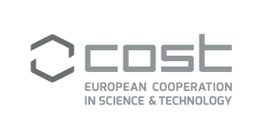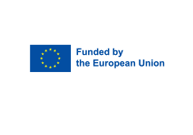Objectives: to coordinate and promote dissemination activities of the Action. (See section 3.2.2).
The white paper will be prepared during the final 18 months and discussed at the final Action meeting.
T5.1 Preparation and distribution of the white paper along with minutes of discussions at the Action conference to stakeholders, including governmental Health Institutions in European nations and to EC (D5.1).
T5.2 Website and social media platform launched and available. (D5.2)
T5.3 In addition to the WGs, the Action will include several networking activities as outlined below: Training Schools (2/year) and workshops (4). Young researchers will learn new techniques and approaches from different experienced researchers across disciplines and European stakeholders, also from outside the Action. This will facilitate better collaboration and a common understanding across WGs (see section 3.2.2). 4 Thematic workshops will be organized for in-depth discussions of central issues pertaining to the Action: 1. Degradome technology and PROTAC in drug design (WG1); 2. Medicinal chemistry: methods materials and environmental impact (WG1/WG4). 3. Mass spectrometry advances in pharmaceuticals detection in the environment (WG3). 4. Biomarker and indicators for ecotoxicology’s studies in the drug R&D process) (WG1-WG4).
Every year two workshops will take place per thematic areas from the four WGs (see section 3.2.2). (D5.2)
T5.4 Short-Term Scientific Missions. STSMs will be organized on the topic reported (see section 3.2.2). Action meetings will take place once a year. European and international stakeholders with an interest in VBD drug discovery against H&A infections, will be invited to Action meeting. Results of the Action network will be presented, and the Action white paper will be discussed. Management Committee meetings, Core Group meetings will take place every 3 months via conference tool (web meeting) to help mapping the Action progress. Webinars will be organized during Action lifetime free from other activities (see GANTT) by Young Researchers and Innovators. Thematic issues are reported in section 3.2.2. And new ones can be activated. All this is developed to reinforce the One Health concepts. Co-tutoring anchored to ERASMUS programs and other transitional networks of PhD students and postdocs by complementary participants adding value to the background of the next generation scientists and improving their employability. This collaborative effort would facilitate the knowledge of the aims and goals of the COST Action. (D5.2)
COST (European Cooperation in Science and Technology) is a funding agency for research and innovation networks. The COST ACTIONS help connect research initiatives across Europe and enable scientists to grow their ideas by sharing them with their peers. This boosts their research, career and innovation.
One Health drugs against parasitic vector borne diseases in Europe and beyond
OneHealthdrugs
24/10/2022
23/10/2026
27/05/2022
Download file
Maria Paola Costi
Anabela Cordeiro da Silva
Maria Cristina Notarsanto
Maria Esposito and Laura Leonardi


